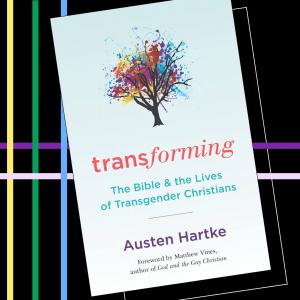
Sarah Pritchard is a dancer, organizer, and co-facilitator of Agape Fellowship community church in Oakland, Calif.
Posts By This Author
Liberation for All
I’VE RECENTLY become acquainted with someone who is locked up in one of California’s 35 state prisons. This person also happens to identify as gay and Christian. Despite years of being told he was an abomination during his Southern Baptist upbringing, somehow my friend has managed to hold onto his love of Jesus. In one of his letters, he wrote, “I am annoyed by the attitude that says, ‘If you’re gay, it’s okay because God forgives you,’” pointing to the assumption that gayness is inherently sinful and needs to be forgiven.
This is an important intervention made by author Austen Hartke as well, as the final chapter of Transforming: The Bible and the Lives of Transgender Christians asserts the need to move “beyond apologetics” and toward theology that not only tolerates trans identity but also embraces trans people as part of the beauty and diversity of God’s creation. Moving beyond apologetics also means moving toward theologies that are written by and for trans people, listening for our unique wisdom and insights, and making changes to church policies and procedures to become more fully inclusive and loving of trans people.
Hartke has some very practical ideas for how faith communities can start doing this work, which he shares in this useful primer on trans Christianity that goes beyond “Gender & Sexuality 101.” Weaving biblical examples of gender nonconformity and transformation with the stories and voices of contemporary trans Christians, Hartke’s approach is both pastoral and prophetic as he addresses harmful Christian theology that has been used to further marginalize and exclude trans people. Hartke’s scriptural basis for a trans-affirming theology offers a healing balm for queer and trans people who have ever questioned that God loves them based on “what it says in the Bible,” while challenging progressive Christian communities to center trans perspectives in their efforts to become truly open and affirming.
Giving voice to diverse trans people reflecting on their relationships to faith, scripture, and Christian community, Hartke disavows the reader of any preconceived notion of a universal trans experience and reveals the intersections of white supremacy, capitalism, heterosexism, patriarchy, and colonialism that impact each of our lives differently, depending on our relationship to these systems of domination.
